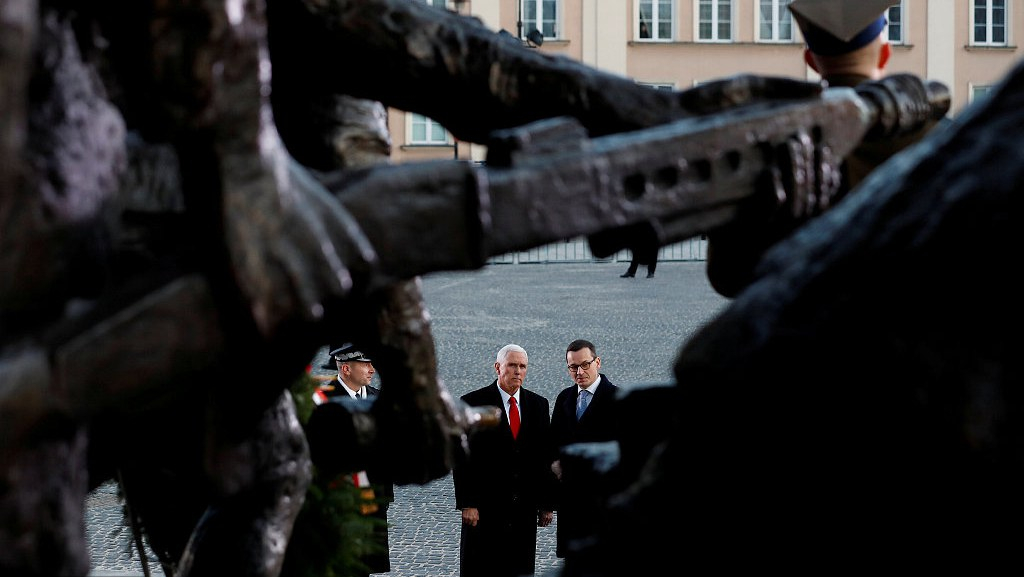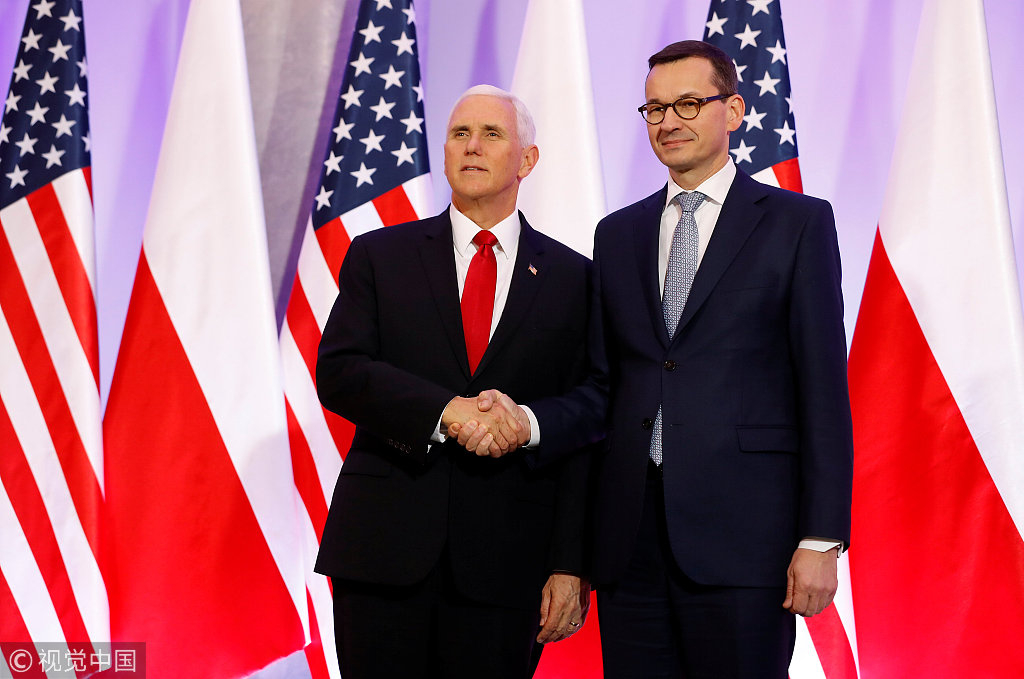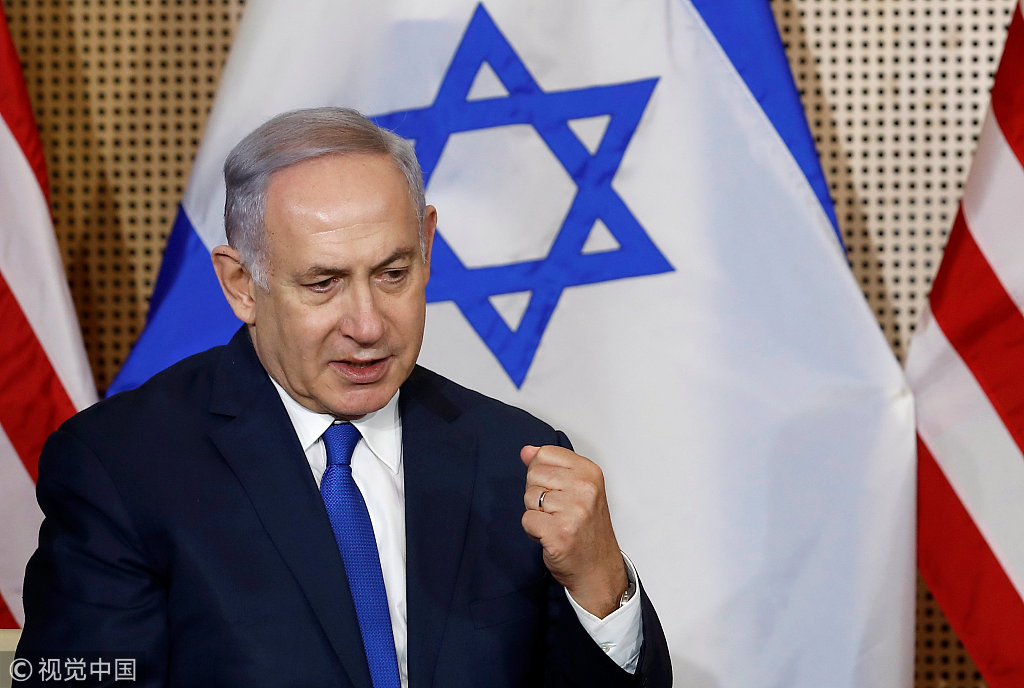
Opinion
15:39, 15-Feb-2019
Will the U.S. succeed in building a new alliance against Iran?
Updated
16:48, 15-Feb-2019
Cong Peiying

Editor's note: Cong Peiying is the Deputy Secretary of BIR Institute, China Youth University of Political Studies and a postdoctoral scholar of Asian Studies at the University of Haifa.
Poland and the U.S. hosted a conference on Middle East peace and security in Warsaw on February 13 and 14. More than 60 nations including some Middle East members, Israel for instance, attended the conference, but the absence of Palestine, Lebanon, Turkey and Russia reduced the importance of the meeting. The official agenda included topics such as efforts to curb rocket and missile armament, cybersecurity and the fight against terrorism. However, the conference yielded no concrete outcome out of the divergence on Iran.
Even though Polish Foreign Minister Jacek Czaputowicz insisted the conference did not focus on Iran, the U.S. actually intended to take the opportunity to build a new alliance to contain Iran. U.S. Secretary of State Mike Pompeo called for a “new era of cooperation” in resolving Middle East challenges and urged its European partners to withdraw from the Iran nuclear deal during the conference, which was seen as an action to isolate Iran.

U.S. Vice President Mike Pence shakes hands with Polish Prime Minister Mateusz Morawiecki at the Prime Minister Chancellery in Warsaw, Poland, February 14, 2019. /VCG Photo
U.S. Vice President Mike Pence shakes hands with Polish Prime Minister Mateusz Morawiecki at the Prime Minister Chancellery in Warsaw, Poland, February 14, 2019. /VCG Photo
However, the U.S. and Europe are deeply divided over the Iran nuclear issue. The Trump administration withdrew from the Iran nuclear deal and re-imposed sanctions on Iran last year, but European countries continued to support the multilateral agreement. Last month, Germany, France and Britain launched a financial tool to help European firms with legitimate business interests in Iran avoid U.S. sanctions.
In fact, the U.S. chose Poland as the partner to co-hold the conference was proof of the divergence between the U.S. and Europe. As a NATO member, Poland is neither a neutral state nor a key stakeholder in Middle East affairs. But Poland is a good partner of the U.S. and wants to extend its influence in East Europe, even at the cost of worsening relations with Iran. Meanwhile, the conference put the U.S. and its allies in an awkward position. European countries were worried that the conference would provoke tensions with Tehran, so Germany and France did not send cabinet-level officials.
Besides, it is meaningless to discuss Middle East peace without Russian and Iran, who was not even invited to the meeting. The only achievement of the conference is to provide an opportunity for Israel and Arab countries ministers to sit together and advance their common interest of confrontation with Iran. As one of the most important allies of the U.S. in the Middle East, Israel has no official relation with the Arab countries such as Saudi Arabia. The conference built a dialogue platform for the former rivals. Considering that Israel will hold the election in April, the conference can also help the re-election of Israeli Prime minister Benjamin Netanyahu.

Israeli Prime Minister Benjamin Netanyahu speaks in Warsaw, Poland, February 14, 2019. /VCG Photo
Israeli Prime Minister Benjamin Netanyahu speaks in Warsaw, Poland, February 14, 2019. /VCG Photo
As Russia and the U.S. suspend obligations under the INF treaty, European countries are at the risk of missile confrontations between the two world powers. Central and Eastern European countries such as Poland will rely more on the military protection of the U.S. Poland is even said to be pushing for a permanent U.S. military base on its territory. On the other side, the conference makes Russia more concerned about U.S. intentions and will bring more geopolitical challenges to the Central and Eastern Europe, harming Middle East peace and stability as well.
(If you want to contribute and have specific expertise, please contact us at opinions@cgtn.com.)

SITEMAP
Copyright © 2018 CGTN. Beijing ICP prepared NO.16065310-3
Copyright © 2018 CGTN. Beijing ICP prepared NO.16065310-3